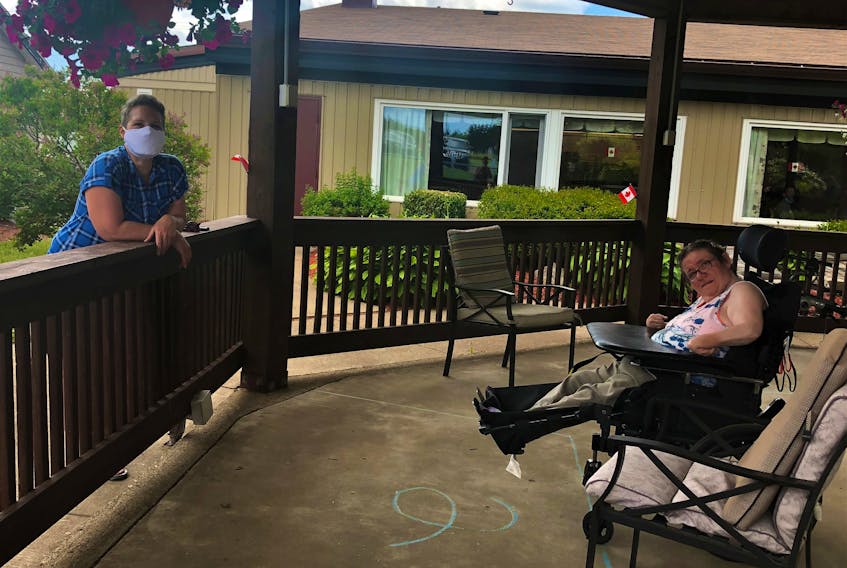In long-term care homes across Atlantic Canada, the strict visitation procedures put in place at the height of the COVID-19 lockdown are slowly being eased.
In Nova Scotia and New Brunswick, both outdoor and indoor visits are now permitted, with strict guidelines. In P.E.I. and Newfoundland and Labrador, long-term care residents can have up to six designated visitors, with a limit of two at a time.
Having more flexible visiting rules is a good thing, because the effects of social isolation are well known.
The Journal of the American Medical Directors Association reports that the prevalence of loneliness in long-term care is double that among seniors living in the community at large. COVID-19 has exacerbated the problem.
Health authorities have had to walk a delicate line between protecting the health of long-term residents and staff and allowing the kinds of interactions that support better mental health and improve quality of life. They know too well that 81 per cent of all COVID-19 deaths in Canada have involved people in long-term care.
Have they struck the right balance?
It depends on who you talk to.
Health authorities have had to walk a delicate line between protecting the health of long-term residents and staff and allowing the kinds of interactions that support better mental health and improve quality of life.
In Charlottetown on Tuesday, approximately 20 people demonstrated outside the Coles Building, calling for greater access to their loved ones in long-term care.
“Make us essential caregivers. Then we can go in and start the process of keeping our loved ones in a good place,” said Trilby Jeeves, whose mother, Joan Kempton Jeeves, resides at Beach Grove Home.
In St. John’s, Harold Hefferton has missed three months of daily visits with his wife, Barbara Hefferton, who has Alzheimer’s and lives in Pleasant View Towers.
Now an advocate for people with Alzheimer’s, Harold thinks the health authorities made the right call.
“Here we are in a somewhat final journey with our loved one and we’ve been robbed of those three months,” he told SaltWire Network. “But the fact of the number of deaths in long-term care plays on your mind. … It’s better to be safe in the long haul. It would have been catastrophic if it had spread (to long-term care homes in the province). You can’t mix science with emotions. Science has kept us safe.”
Whatever your position, there’s no question that social isolation is a tough pill to swallow, both for families and residents of long-term care, many of the latter being seniors of a generation that suffered great privations during the Depression and the Second World War.
Easing restrictions will help families reconnect, although sadly not everyone will get the chance.
If there’s one silver lining, it’s as Harold Hefferton points out, that COVID-19 has thrust long-term care into the spotlight.
“It’s paramount that we collectively don’t drop the ball on long-term care,” he says, “We’ve got some momentum now.”









